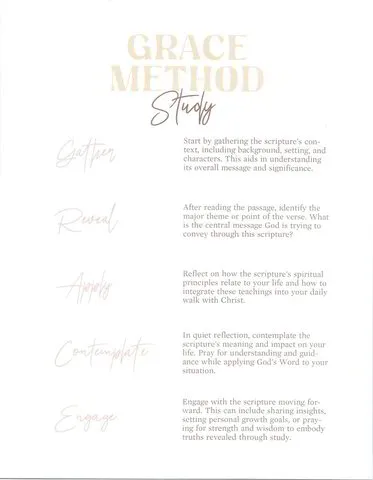Matthew 18:21-22 presents a profound teaching from Jesus on the nature and extent of forgiveness, a theme that lies at the heart of the Christian faith. In this passage, Peter, one of Jesus’ closest disciples, questions the frequency with which one should forgive others who have wronged them. Jesus’ response, rooted in divine wisdom and compassion, challenges Peter and all believers to embrace a radical and transformative understanding of forgiveness. By delving into this powerful exchange, we gain insight into the boundless grace of God and the essential role of forgiveness in fostering healthy relationships, personal growth, and spiritual maturity.
Historical Background:
Matthew 18:21-22 is a passage from the Gospel of Matthew, one of the four Gospels in the New Testament. The Gospel of Matthew was likely written between AD 80 and 90 by an author traditionally identified as Matthew, a tax collector and one of the twelve apostles of Jesus. This Gospel was composed primarily for a Jewish audience and emphasized Jesus as the fulfillment of Old Testament prophecies.
Set within the broader context of Jesus’ ministry, Matthew 18:21-22 occurs when Jesus taught his disciples about various aspects of life in the Kingdom of Heaven, including humility, dealing with sin, and restoring broken relationships. In this passage, Jesus addresses the essential theme of forgiveness, a key component of his teachings throughout the Gospels.
The Message of Matthew 18:21-22:
Verse 21: Peter, one of Jesus’ closest disciples, initiates the conversation, seeking guidance on an issue that affects all human relationships – forgiveness.
“Then Peter came to Jesus and asked, “Lord, how many times shall I forgive my brother or sister who sins against me? Up to seven times?”
Peter proposes a generous approach to forgiveness by suggesting forgiving someone up to seven times for their offenses, which surpasses the prevailing Jewish tradition of forgiving up to three times.
Verse 22: “Jesus answered, ‘I tell you, not seven times, but seventy times seven.”
Jesus’ response transcends Peter’s proposal and the cultural norms of his time, emphasizing the eternal nature of forgiveness. It is important to note that “seventy times seven” is not meant to be taken literally but rather symbolizes an infinite and immeasurable amount of forgiveness.
Consider:
A Father’s Unfailing Love
John, a devoted father, and husband, worked tirelessly to provide for his family. His teenage son, Michael, was the center of his world, and he did everything he could to guide him through the challenges of adolescence. However, Michael struggled with anger and resentment, often leading him to make poor choices.
Despite Michael’s mistakes, John always forgave his son, remembering the teachings of Jesus in Matthew 18:21-22. John believed his love and forgiveness could help Michael grow into the person he was meant to be.
One night, Michael stole his father’s car and went for a joyride with some friends. Tragically, they were involved in a terrible accident, leaving Michael critically injured and the vehicle destroyed. When John received the news, he felt fear, pain, and anger like he had never experienced.
As John sat by Michael’s hospital bed, praying for his son’s recovery, he wrestled with his emotions. He knew that Jesus taught about forgiving seventy-seven times, but the weight of this particular transgression seemed unbearable.
In the quiet of the hospital room, John prayed for guidance and strength. As he recalled Jesus’ words, he realized that forgiveness was not just a choice but a command. With tears in his eyes, John took his son’s hand and whispered, “Michael, I know what you did, and it hurts me deeply. But I am here to offer you forgiveness, just as Jesus taught us.”
Michael, barely conscious and struggling with guilt, looked at his father with tearful eyes. “Dad, I don’t deserve your forgiveness. Why do you keep forgiving me, even after everything I’ve done?”
John smiled through his tears and replied, “Because Jesus forgave us, and He calls us to do the same. I will continue to forgive you, my son, seventy-seven times and beyond, for that is what He has taught us.”
Over time, Michael made a miraculous recovery. As he healed physically, the love and forgiveness he experienced from his father also began to heal his emotional wounds. Michael learned the power of grace and mercy and dedicated his life to becoming better.
Once on the brink of collapse, the family was restored through the power of forgiveness inspired by the teachings of Matthew 18:21-22. John’s unwavering love for his son demonstrated the boundless capacity for forgiveness that Jesus calls us to embrace, transforming not only their lives but the lives of everyone they encountered.
Applying His Word to Life:
To put this message of forgiveness into action, consider these practical steps:
- Acknowledge the hurt: Recognize the pain caused by the offense and allow yourself to feel the associated emotions. This helps you process the situation and prepares you for the next step.
- Pray for the offender: Ask God to bless and guide the person who hurt you. Praying for them can soften your heart and pave the way for forgiveness.
- Seek reconciliation: If possible, approach the person who wronged you and initiate a conversation about the issue. Express your feelings, but also be open to listening to their perspective.
- Forgive and let go: Make a conscious decision to release the person from the debt they owe you. This doesn’t mean forgetting the offense but choosing not to hold it against them any longer.
Lesson Topic Questions:
- How does Jesus’ teaching on forgiveness in Matthew 18:21-22 challenge our understanding of forgiving others?
- In what ways can we develop a heart willing to forgive seventy-seven times, as Jesus instructed in Matthew 18:21-22?
- How do the teachings of Matthew 18:21-22 relate to other biblical passages that emphasize the importance of forgiveness?
- What practical steps can we take to apply Jesus’ teachings on forgiveness from Matthew 18:21-22 in our daily lives and relationships?
- How can we use the message of forgiveness in Matthew 18:21-22 to foster personal growth and spiritual maturity in our walk with Christ?
WANT TO LEARN MORE?
Get more information and more lessons in the Topical Readings Bible Study here!


